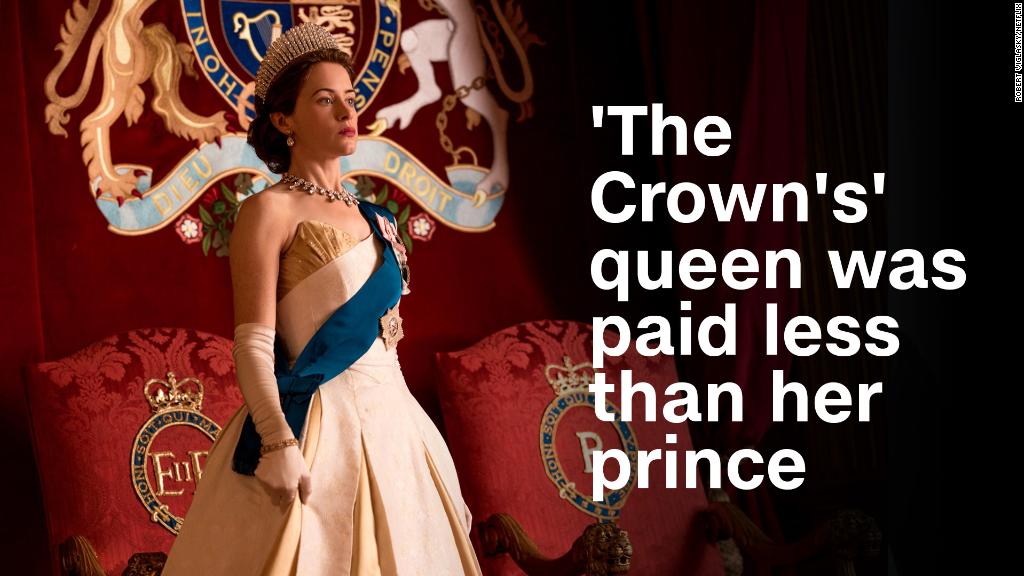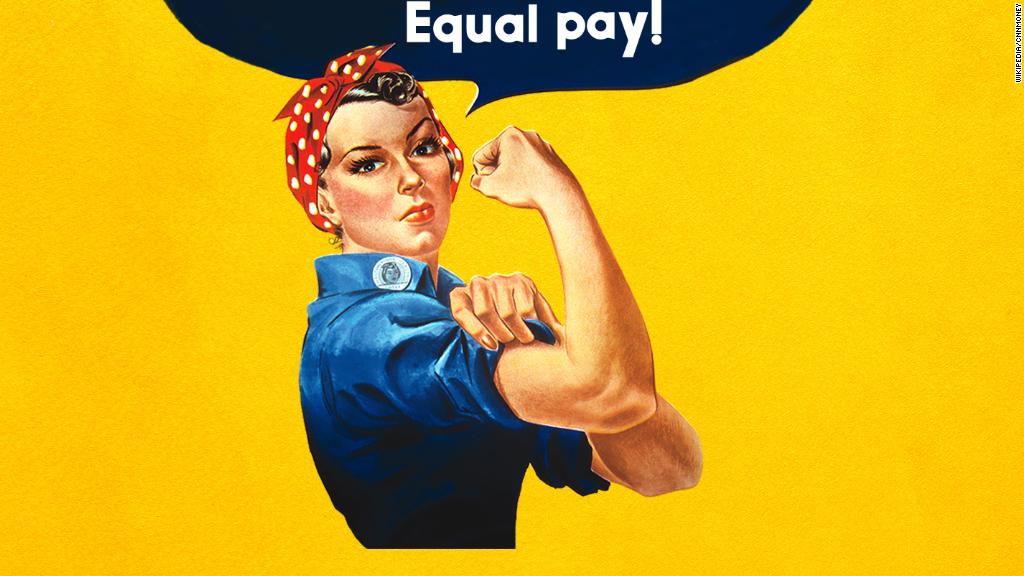
Women in the United Kingdom are learning for the first time exactly how much more their male counterparts are paid.
Companies and organizations that employ 250 or more people in the United Kingdom were legally required to reveal their gender pay gaps by Wednesday.
The numbers show the vast majority of businesses on average pay men more than women, a trend that cuts across all sectors of the economy and affects both public and private employees. Over 9,000 companies have submitted data.
The government hopes that "naming and shaming" companies with large pay gaps will force them to take steps to tackle inequality.
Revealing the gap
The companies are required to disclose mean and median gaps between hourly wages for male and female staff.
The mean pay gap is calculated by adding up hourly wages paid to full time male employees, and full time female employees. The sum for each category is then divided by the number of employees in each gender.
Doing so reveals how much less, in percentage terms, women are paid per hour on average.
Companies are also required to reveal the difference between median hourly rates, which compare the pay of employees at the middle of the scales. The measurement helps exclude outliers who are very highly paid. Bonus payments to men and women are compared, too.
Turner, the parent company of CNN, said in a filing Tuesday that its mean gender pay gap in the United Kingdom was 21%, while its median gap was 27%. At CNN's bureau in London, the mean gap was -3% and the median was 24%.
It's been an uncomfortable exercise for many companies, but advocates welcome the mandatory disclosures.
"It forces employers to look at themselves and understand their organizations and it prompts employees to ask some hard questions," said Sam Smethers, chief executive of Fawcett, a group that campaigns for women's rights.
Big offenders
Soccer clubs are prime offenders, dominating the top ranks of companies with the biggest mean gender pay gaps.
Stoke City Football Club, for example, reported a mean gender pay gap of 92.5% -- but that figure includes its highly paid male soccer stars. The club's median gender pay gap is 31%.
Related: Women in supermarkets want same pay as warehouse workers
It's not just sports teams.
Fashion retailers Coast and Phase Eight, the airlines Ryanair (RYAAY), EasyJet (ESYJY) and Virgin Atlantic, and banks including HSBC (HBCYF), Goldman Sachs (GS) and JP Morgan (JPM) all reported mean pay gaps of over 50%.
What companies say
Some companies with large gaps have said they pay women and men in similar jobs the same amount. They argue the pay gaps are big because men tend to dominate highly paid positions.
Airline pilots, for example, tend to be both well compensated and male. The same is true for senior bankers.
Related: #MeToo and #TimesUp have pushed companies to review pay policies
Under the rules, companies have to disclose the percentage of women in different pay bands and the general trend is clear: most companies have higher proportion of men in top paid roles, while women tend to dominate the lowest tier.
Experts say having fewer women in senior positions is a big part of the problem.
"Many organizations consider the gender pay gap to be acceptable if men and women do different jobs or that men hold more senior positions than women ... this is worrying," said Hazel Conley, a professor of human resource management at the University of the West of England.

Change on the way?
There are signs the approach may be working -- several organizations, including the BBC and EasyJet (ESYJY), have taken very public steps in recent months to remedy pay inequity.
A report published by the BBC last July revealed that just under a third of its top paid executives, managers and media stars are women.
The BBC said in January that it would be more transparent about what it pays its correspondents, and offer salaries in narrower bands. It said it had addressed hundreds of cases of pay unfairness.
The broadcaster said some men will take substantial pay cuts, while some women and other men would see their salaries increased.
Related: BBC fails to convince female staff with pay review
The annual salary paid to EasyJet CEO Johan Lundgren was cut by £34,000 ($48,000) to £706,000 ($994,000) in January. That's the last salary earned by his predecessor, Carolyn McCall.
The new data also revealed some success stories. Among major global companies, Unilever (UL), Toyota (TM), Mars and BP (BP) reported that women in specific divisions were paid more than their male colleagues.
Global pay gaps
While the new data is limited to workers in the UK, it is likely that the situation is similar in other developed economies.
According to The World Economic Forum, the overall gender pay gap in the United Kingdom and United Sates is similar.
Women in the United Kingdom can expect to be paid around 81 pence for every £1 a man makes. In the United States, it's about 82 cents for every dollar, according to data from the US Department of Labor.


